Ewan Q&A: On my day I know I can beat the best
Sprinter talks Giro d'Italia, sprinting positions and leadouts
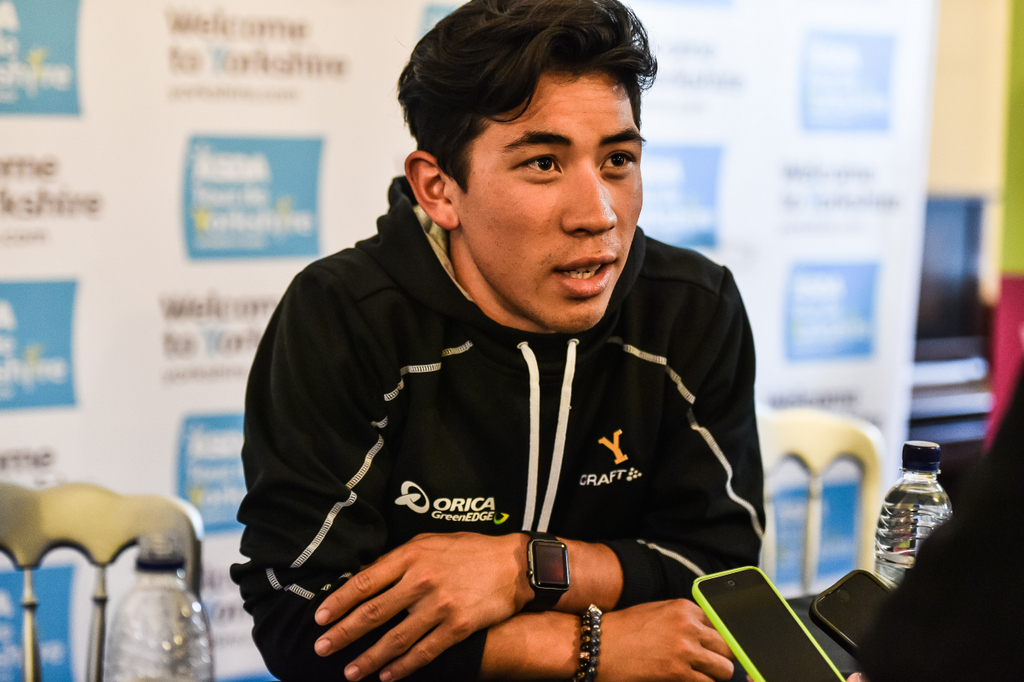
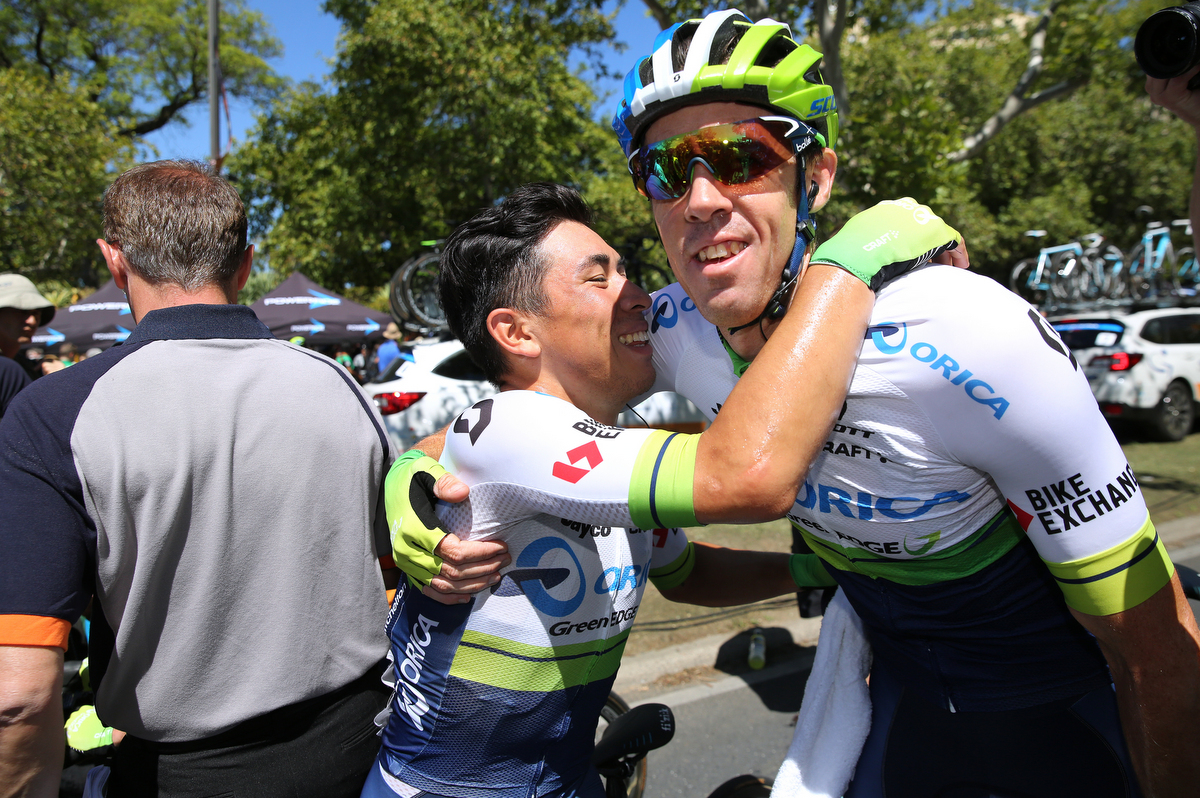
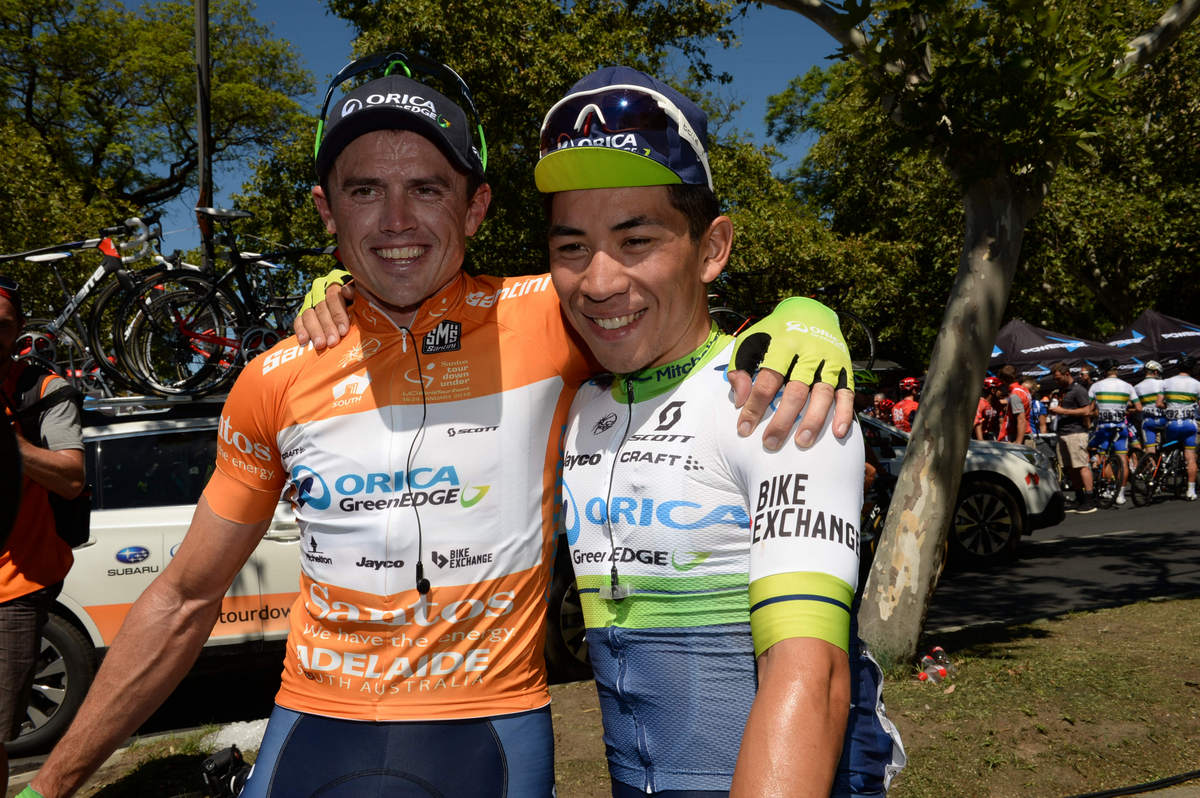
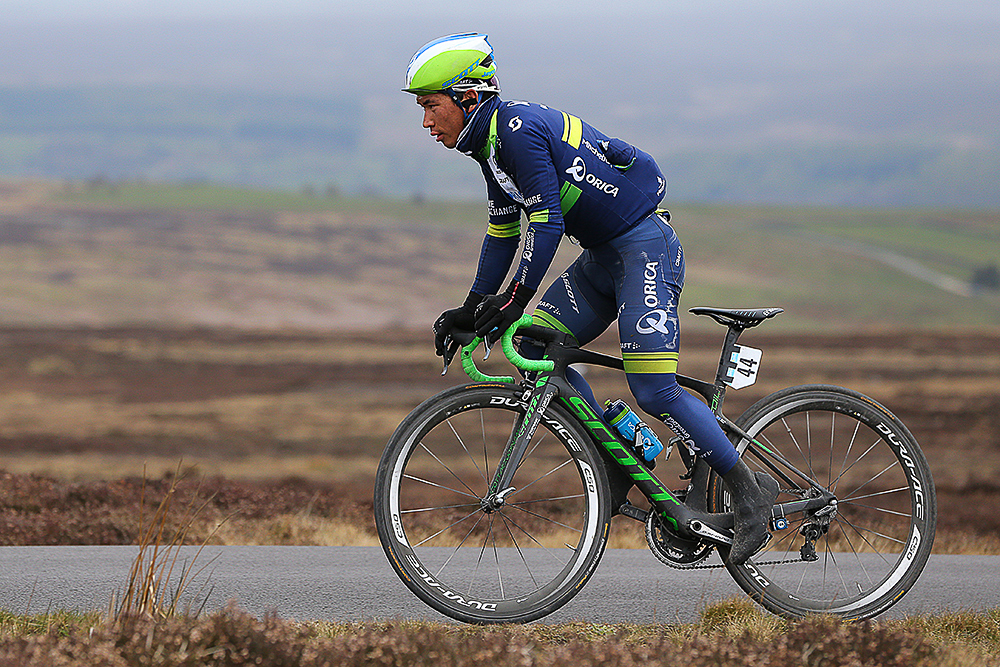
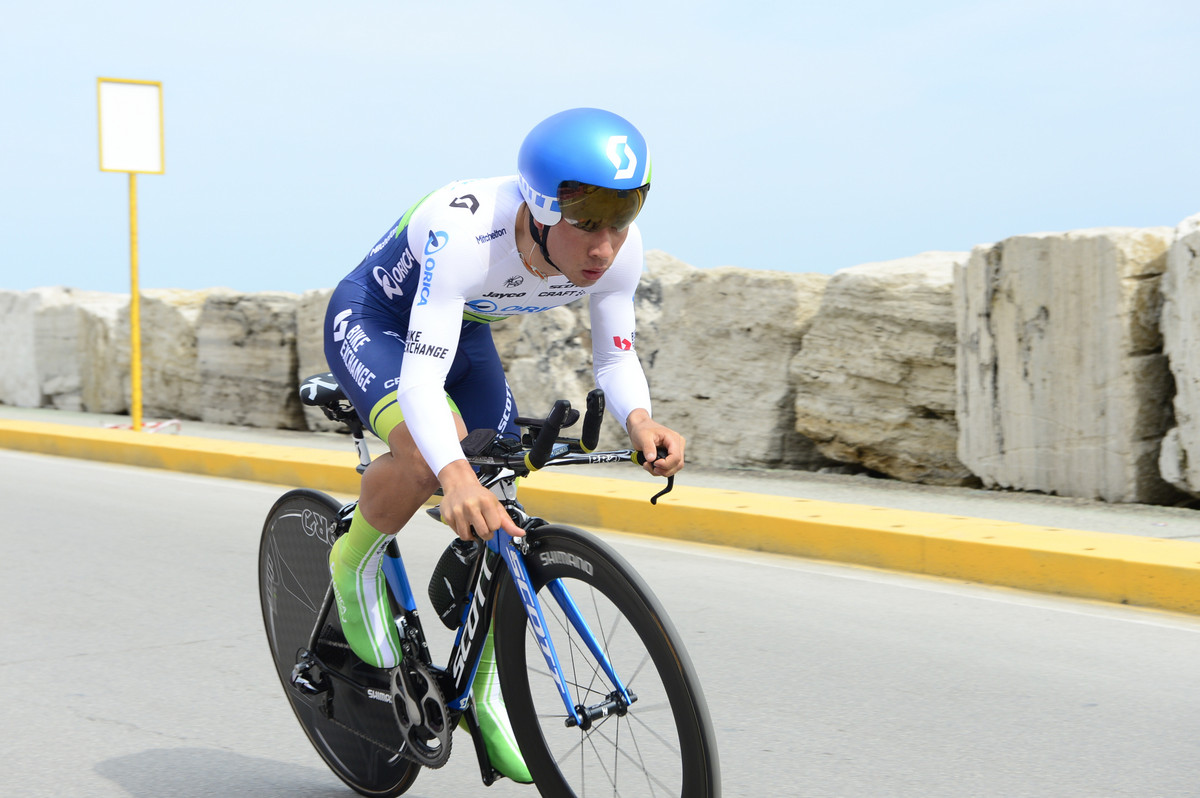
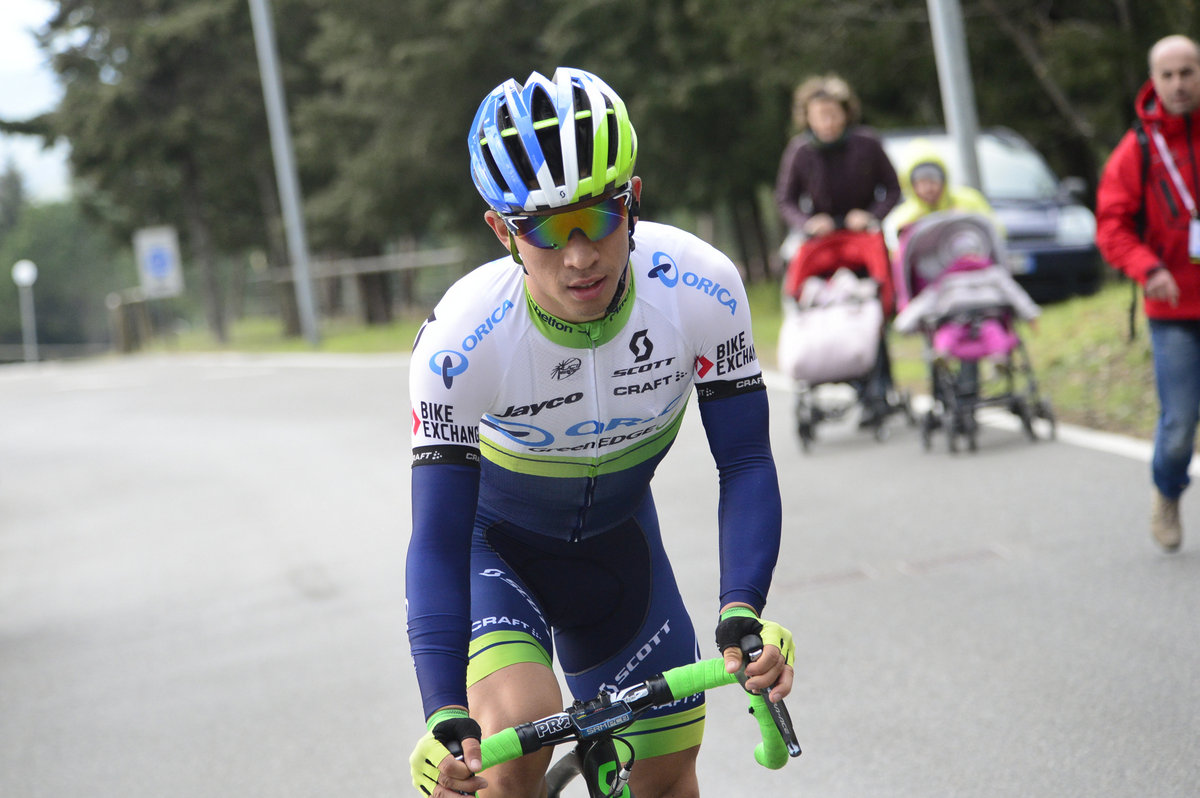
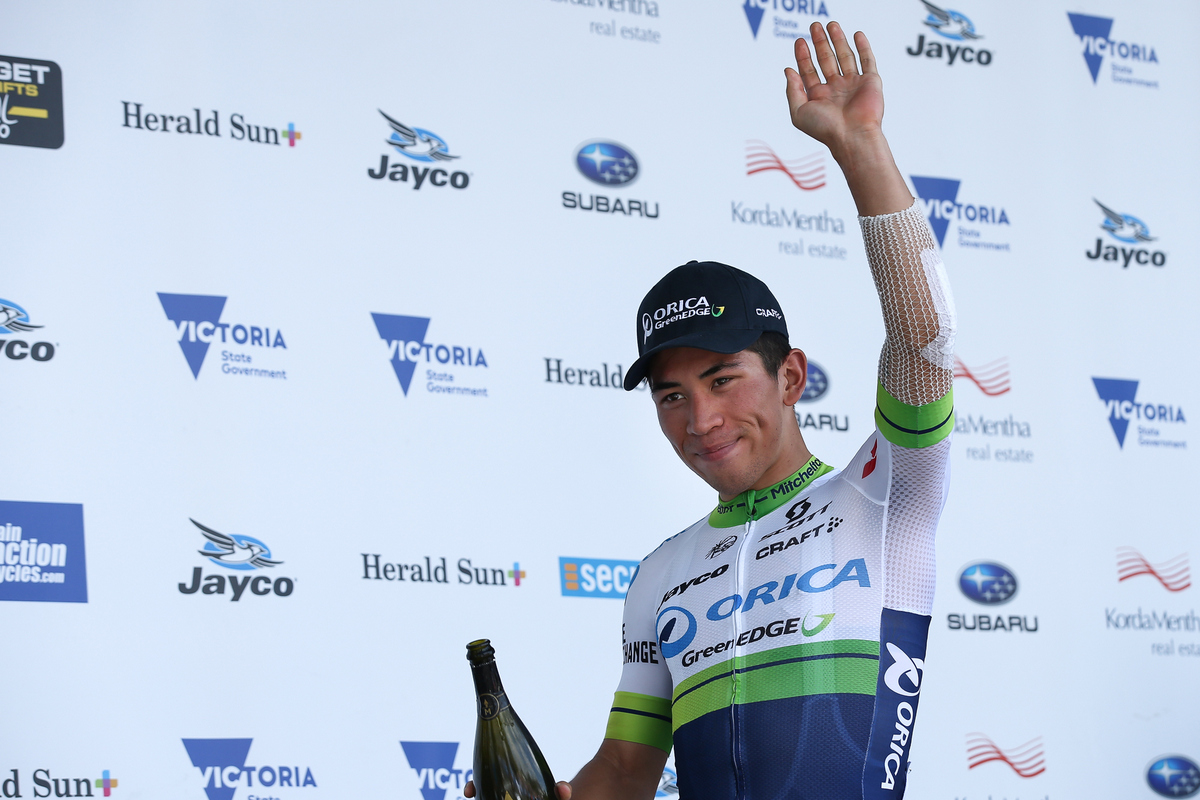
Ahead of the Giro d’Italia Cyclingnews sat down with Caleb Ewan to talk about his rise through the ranks, that unique sprinting position and his path towards world sprinting domination.
The Australian turned professional with Orica GreenEdge in 2015 and won a stage in the Vuelta a Espana on his debut. He’s targeting a number of stages in this year’s Giro.
Cyclingnews: For those of us who aren’t aware of how you got into cycling, can you bring us up to speed?
Caleb Ewan: So I started cycling when I was about 10. I never really started and thought that it would become a profession, I got into it because at that age you just ‘do sport’. I was combining cycling and rugby but pretty soon I moved completely into cycling. When I started I wasn’t actually great or even that good for a long time.
CN: Really? Can you define not being that good?
CN: Family. How supportive were they when you were coming through?
CE: My dad was also a cyclist but he quit when he was about 18. He started up again around a year before I started for fitness. At that age you follow what you’re dad is doing and it went from there.
Get The Leadout Newsletter
The latest race content, interviews, features, reviews and expert buying guides, direct to your inbox!
CN: You made a name for yourself at very young age back in Australia. It was widely expected that you’d move up with Orica but how quickly did that move really come about?
CE: It wasn’t always on the cards that I’d come to Orica. When I was about 17 I started to realise that I could make it as a pro but it was 18 when I signed my pre-contract with Orica. They never really hassled me but when I was ready they came.
CN: Was there ever a thought in your mind that you were turning pro too young?
CE: No, not at all. I think a lot of the good riders will turn pro after a couple of years in the U23 ranks. I signed mine after a year at that level but that stipulated that I’d stay U23 for another season.
CN: Why Orica? Surely there’s more to it than the fact you’re both from the same nation.
CE: Definitely. It’s a team where I probably get the most opportunities. If I went to a team like Sky, where they are so focused on the GC, it would be harder. For a young sprinter to go there I think you’d lost and your career would go downhill. For a team like GreenEdge they have my best interests at heart and they want to see me do well. They’re going to really try and develop me.
CE: BMC, Sky and GreenEdge were the main three. That’s a good thing to have when you’re a young guy trying to turn pro. GreenEdge was the best bit?
CN: Has it been everything you’ve dreamed of and more?
CE: It’s been quite tough actually. Especially back home people that when you turn pro you have this nice life and it’s just about riding your bike and have coffees. It’s more than that, and you’re living by yourself on the other side of the world. There’s a step up in racing and I struggled a bit last year but in the long term I think it will be fine.
CN: What was the biggest transition or difficulty for you when you moved into the pro rank?
CE: The racing last year, and the transition wasn’t so bad because of the races that GreenEdge put me in. I wasn’t always doing WorldTour races at the start of the year so when they eased me into that I was already half a year stronger. That part of it was a lot easier for me because a lot of teams they put their neo-pros into harder races and just see how they go. GreenEdge were a lot more cautious with me.
CN: Is there marked difference in terms of racing style when you move from your normal pro level races to your WorldTour races?
CE: Definitely. It’s a lot more controlled at WorldTour because at that level if the leaders want four guys up the road in a break, that’s what will happen. If there are five then they’ll bring it back. If you do other pro level races that have a mix of WorldTour, Pro Conti and Conti teams then there’s less control, more attacking and it’s a lot harder. At WorldTour it might be a lot harder for the first hour. Then it shuts down for a while before it gets a lot harder again.
CN: Your sprinting position - it’s similar to Cavendish but perhaps more extreme. Is that an area you’ve targeted in which you can gain advantage over the typically bulkier sprinters?
CE: I can’t put out as much power as guys like Kittel or Griepel so you have to look for different ways to go faster. For me, being aero is the only thing I can do. I can’t really improve on my max power a whole lot but at the end of a race you’re not really hitting your peak power anyway. If you can find a little advantage it can make the difference between winning and losing.
CN: How did you arrive in that position though? Your chin is almost touching your front tire.
CE: We did look at it in the wind tunnel about a year and a half ago. We could see that it was quicker so the hard part was actually bringing that onto the road and then doing that in a sprint. It’s one thing to do it in training but in racing when you’re already tired you come up to get more power. I had to get my head around going lower in order to hold my speed. You lose power doing it but you keep speed because you’re more aero.
CN: So where do you rate yourself in their constantly moving hierarchy of world sprinters?
CE: To be honest I don’t really know. I know that I’m good enough to be up there and that if a race goes my way then I’m good enough to win it. I’ve raced the top guys one-on-one all throughout last year but I’ve never really raced them together all at once. On my day I know I can beat them but I’m not that confident to say that I can consistently beat them or that I’m better.
CN: The Giro is your next race. Do you have a number of objectives?
CN: On your leadout, it’s changed in the last few years. First it was Blythe but now it alternates with a few riders. Do you feel like you need a dedicated leadout man, like for example Cavendish has with Renshaw?
CE: I think it’s too early to find a guy like that. Cav didn’t really find Renshaw until he was a pro for a few years. We’ve got good likes here with Luca and Alex Edmondson coming through. There’s plenty of potential there but it’s about finding the person who fits the role best. I don’t think I’ve found my Renshaw just yet but I will soon.
CN: Finally, the worlds. I talked to a few Australian journalists and they think you could make the team and be a possible leader. Is that something you and national coach Brad McGee have talked about?
CE: If everything is going well in the second part of the season then I think I will go to Worlds. It all depends on how I’m going and then I could potentially be a leader. That would be pretty cool, to be a leader, going into an elite world championships. If the whole day goes well and I’m feeling right, then who knows.
CN: Have you raced in Qatar before?
CE: I haven’t actually. I’ve seen the circuit it’s like technical, like a big long crit.
CN: Like a bike Bay Crit.
CE: Exactly.
To subscribe to the Cyclingnews video channel, please click here.
Daniel Benson was the Editor in Chief at Cyclingnews.com between 2008 and 2022. Based in the UK, he joined the Cyclingnews team in 2008 as the site's first UK-based Managing Editor. In that time, he reported on over a dozen editions of the Tour de France, several World Championships, the Tour Down Under, Spring Classics, and the London 2012 Olympic Games. With the help of the excellent editorial team, he ran the coverage on Cyclingnews and has interviewed leading figures in the sport including UCI Presidents and Tour de France winners.
